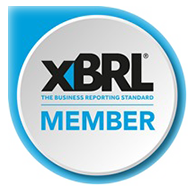Reporting Standard has develop a relational database model for storing XBRL information such as XBRL Reports, XBRL Taxonomies and linkbases. The database allows you to store in the database two things simultaneously:
- Firstly, the database will store an exact copy of the files transmitted, this allows Reporting Standard tools to access to the files as if they where stored in a regular file system on a hard disk.
- Secondly, the content of each file is stored in different tables of the relational database model. It is possible to use SQL language to access to cross instance document and cross taxonomy information. The content model is based on the XBRL Infoset and allows any piece of information with XBRL semantics to be accessed. As the database is an XBRL 2.1 database, it is possible to store information of multiple taxonomies or multiple releases of the same taxonomy at the same time along with reports that are valid against different XBRL Taxonomies.
A practical example of the XBRL Database can be found here: http://www.xbrl4.org/regulators/ExploreXBRL.html
The search engine features a language interpreter to convert XBRLq queries into SQL Statements to interrogate the content of the database as if the XBRL content were in Google.
Other characteristics:
The product is based on a relational database product that can be any of the most popular databases in the market.
The database model is designed in a way that no duplicate information is ever stored. If two different XML Elements have the same value, the content is reused. The efficiency of this data model makes possible the storage of millions of XBRL Reports while keeping impressive performance during regular operations.




